At Harvard, a Summit for Free Expression
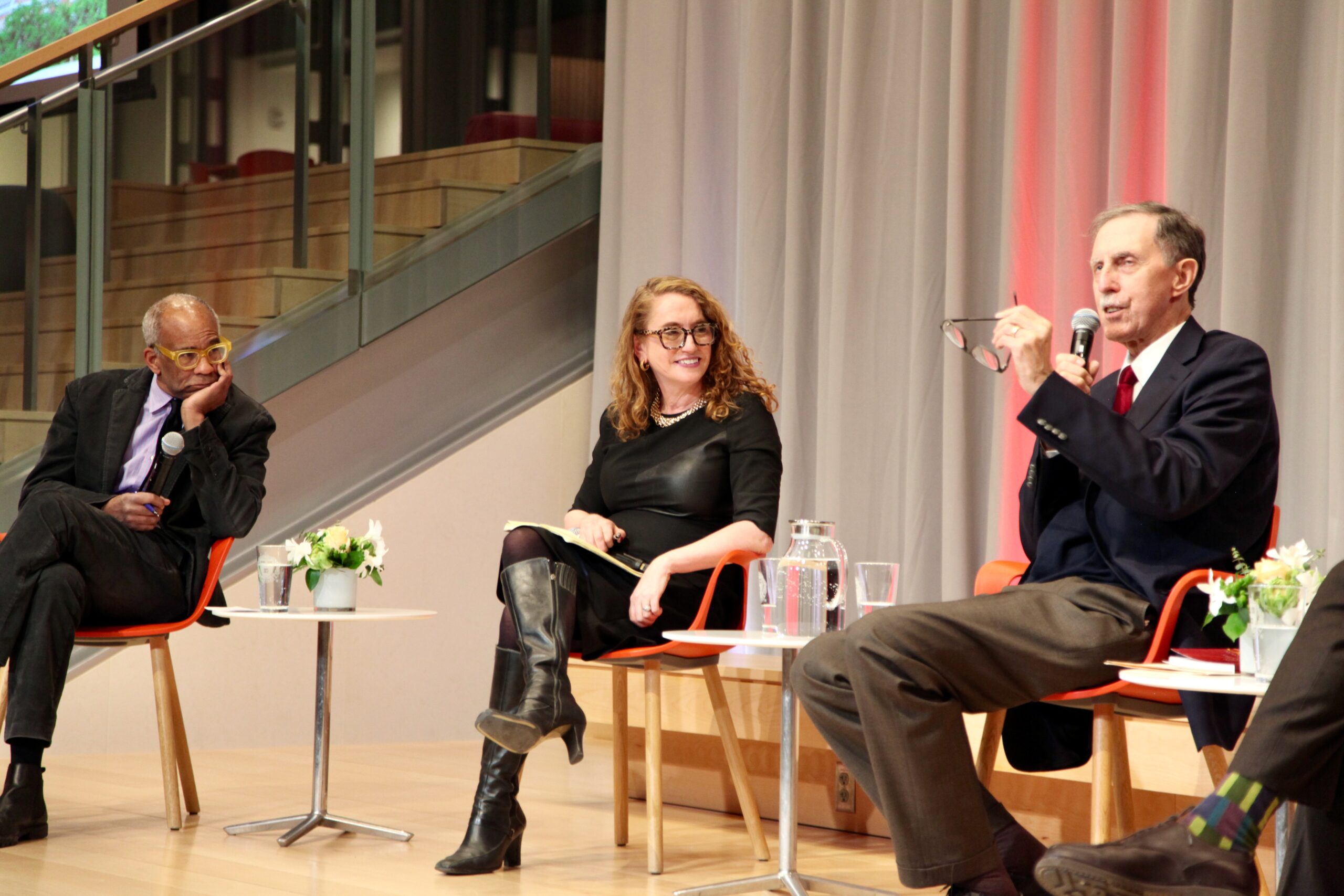
Harvard law professor Randall Kennedy, PEN America CEO Suzanne Nossel, and University of Chicago Dean of the College John W. Boyer speak at a Harvard keynote panel. (Photo: Lisa Tolin)
CAMBRIDGE, Massachusetts – Amid its high-profile struggle around free speech on campus, Harvard College invited PEN America to convene a Free Expression Summit on Friday for 100 student leaders from Harvard and other universities.
The event kicked off with a lively keynote panel about free expression in higher education featuring PEN America CEO Suzanne Nossel, Harvard law professor Randall Kennedy, and University of Chicago Dean of the College John W. Boyer, moderated by Dean of Harvard College Rakesh Khurana.
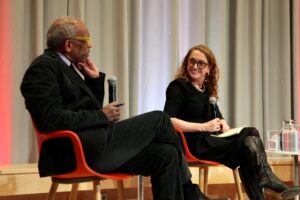
Harvard law professor Randall Kennedy and PEN America CEO Suzanne Nossel. (Photo Lisa Tolin)
Nossel said that when it comes to emphasizing a university’s mission of fostering free speech and academic freedom, “It’s clear we’ve lost the thread, that young people overwhelmingly don’t feel they can express themselves. … And so I hope this moment of crisis can become the catalyst to take this on. Harvard could be a leader here, because I think it’s so elemental to the university’s values. And what happens at Harvard, and the disposition of this crisis, is going to be watched, not just across the country, but all over the world.”
The panel discussed the need for more education in universities around how to have difficult conversations about hot-button issues, and how to reinforce that learning throughout the college experience – despite the pressures of cancel culture and social media. They spoke about the need for clear guidelines about speech that don’t change with the latest crisis.
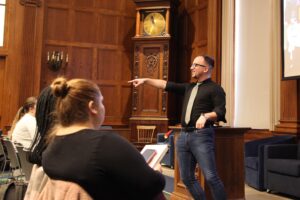
Nicholas Perez presents an overview of the conceptual foundations of free expression advocacy. (Photo Lisa Tolin)
Harvard is not the only university facing upheaval amid protests that have rocked college campuses since Oct. 7. Harvard President Claudi
ne Gay and University of Pennsylvania President Liz Magill were both pressured to resign after their controversial testimony at a congressional hearing on antisemitism. Similar pressures have caused tensions at M.I.T., Columbia, and universities across the country.
On Friday, Princeton professor Keith Whittington opened the summit with a robust history of academic freedom on college campuses, and said we are at an inflection point with universities facing extraordinary threats.
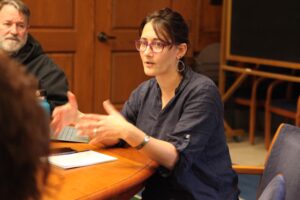
Kristen Shahverdian discusses academic freedom and free speech on campus. (Photo Lisa Tolin)
“It’s all well and good to be committed to free speech in the abstract. You’re committed to the idea that we all talk about controversial ideas. It’s another thing when we actually encounter an idea. … It’s much harder to say, Well, wait a second. Now I’m the one being offended and disturbed. Now you’ve gone too far.”
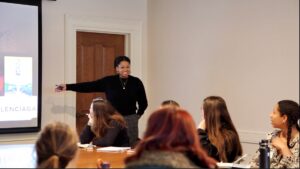
Sabrina Adams discusses cancel culture and the ethics of storytelling. (Photo Lisa Tolin)
PEN America’s Nicholas Perez, program manager of free expression and education, followed with an overview of the conceptual foundations of free expression advocacy, followed by a breakout session on counter-protests. Kristen Shahverdian, senior manager of Free Expression and Education, led a session on academic freedom and free speech on campus, while Sabrina Adams, program manager of National Outreach, led a session on cancel culture and the ethics of storytelling.
The summit was part of a larger project at Harvard to foster intellectual vitality on campus.





